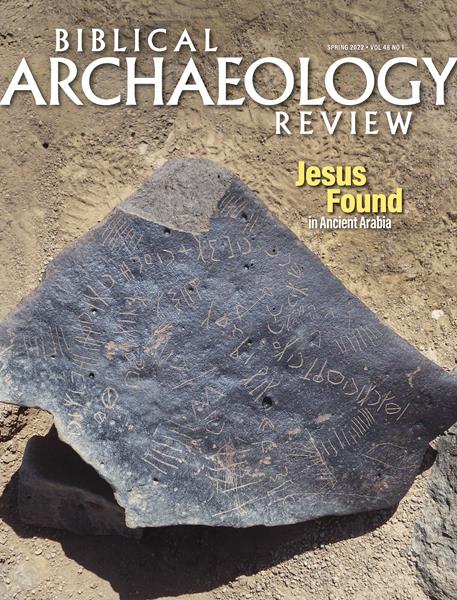Biblical Archaeology Review, Spring 2022

Features
The Philistines have gone down in history as ancient Israel’s archenemy. Yet they were much more than that. We have uncovered their cities, temples, houses, weapons, tools, and pots—and, recently, remains of the Philistines themselves. Thanks to new DNA analysis, we now can answer questions about the Philistines’ origins. (Ed. note: This article contains images of human skeletal remains.)
Our project may have found the earliest reference to Christian belief among the ancient Arabs. Likely dating to the fourth century, a desert inscription written in a peculiar script appears to invoke the name of Jesus. What does this unique text reveal about Christianity’s first spread to the Arabian tribes?
Securing and storing food was just as essential in biblical times as it is today. Across Israel, archaeologists have unearthed containers and installations used to store essential staples and foodstuffs, shedding light on everyday life in the biblical world.
Archaeology and mathematics may have identified a forgotten palace of Herod the Great at Banias (ancient Caesarea Philippi). The marvelous floor design that once decorated an early Roman monumental structure at the site has parallels in other Herodian palaces. Explore the similarities and learn about the ingenious step-by-step reconstruction that made the identification possible.
